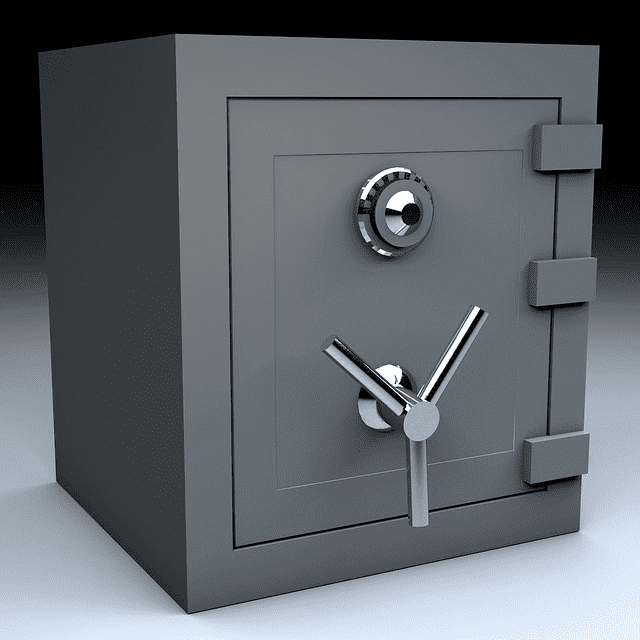
Estate planning is a crucial process that helps ensure your wishes are carried out after your passing. But once you have completed your estate planning documents, “where do I store my estate planning documents?” is a question that may arise. The answer lies in finding the perfect balance between accessibility, security, and protection against unforeseen events. In this blog post, we’ll guide you through seven essential tips for safekeeping your estate planning documents, helping you make an informed decision that suits your unique needs and preferences.
Key Takeaways
- Choose a secure storage option for estate planning documents that considers preferences, accessibility, security and susceptibility to natural disasters.
- Utilize digital solutions with encryption and password protection to ensure the safety of your documents while allowing access to trusted individuals.
- Regularly update and revisit your estate plan to maintain control over financial affairs and legacy.
Choosing the Right Storage Option for Your Estate Planning Documents
Selecting the most suitable storage option for your estate planning documents requires careful consideration of:
- Your personal preferences
- Accessibility
- Security
- Susceptibility to natural disasters
A thorough evaluation of the pros and cons of each storage option will allow you to keep your documents secure and readily available when necessary.
Furthermore, it’s of utmost importance to relay the location of your estate planning documents to reliable individuals, ensuring their utilization after your demise.
Waterproof and Fireproof Safe at Home

Storing your estate planning documents at home offers control and convenience. It is also important to make sure the document is kept in a waterproof and fireproof safe. However, this method comes with risks such as theft, humidity, pests, and wear and tear. To prevent these threats, consider placing the safe on a higher shelf in single-story homes or on the upper floor in two-story homes. When selecting a safe, prioritize features like fire resistance, waterproofing, size and capacity, locking mechanism, durability, portability, and certification.
It is of utmost importance to inform trustworthy individuals about the location and combination of your safe, guaranteeing access to the documents, including medical records, should you be unable to do so yourself. A judicious selection of the appropriate safe and communication with trusted individuals will help you strike a balance between security and accessibility for your estate planning documents.
Safe Deposit Box at the Bank

A safe deposit box at the bank provides added security for your estate planning documents, protecting them against theft, fire, and other potential damages. Access to safe deposit boxes is usually limited to bank hours. This could make it difficult for people when they need quick access in an urgent situation. To avoid complications, make sure trusted individuals are aware of the box’s existence and have the necessary authorization or keys to access it.
While a safe deposit box provides enhanced security, one must bear in mind that if the box is solely under your name, the bank may necessitate a court order to access its contents posthumously. This could result in delays and a prolonged process involving paperwork, attorneys, and legal fees.
Entrusting Your Attorney with Document Storage
Entrusting estate planning attorneys with your estate planning documents guarantees professional custody, secure storage facilities, guidance, and confidentiality. However, potential drawbacks include the complicated process of accessing documents if the attorney retires, relocates, or experiences significant changes within their firm. Additionally, there may be fees associated with storage or retrieval services, and delays in obtaining documents during transitional periods of the law firm.
Consulting an estate planning attorney or tax advisor can help you determine the most suitable storage for estate planning documents. Trusting an attorney with your documents provides peace of mind that your documents are secure and professionally managed.
Digital Solutions for Storing Estate Planning Documents

Digital storage solutions offer ease of access and distribution for your estate planning documents, along with the potential for password protection and encryption. However, storing your tangible and intangible assets, such as documents electronically, comes with its own set of risks, such as susceptibility to cyberattacks, data breaches, and potential legal inadequacy.
To ensure your digital documents are secure, consider employing encryption and password protection measures, as well as sharing access with trusted individuals for quicker retrieval during emergencies. Utilizing digital storage solutions and taking the necessary precautions will result in your estate planning documents being both accessible and secure.
Encryption and Password Protection
Encrypting and password-protecting your digital estate planning documents adds an extra layer of security, preventing unauthorized access. Grant access to the password or access code for encrypted digital documents to the executor of your estate, a trusted loved one or friend, or your estate planning attorney. Reliable encryption software, such as AxCrypt and VeraCrypt, can help secure your documents.
Employing encryption and password protection safeguards your digital estate planning documents from unauthorized access, thereby maintaining their confidentiality and integrity, and providing peace of mind and control over your sensitive information.
Sharing Access with Trusted Individuals
Sharing access to your digital estate planning documents with trusted individuals allows for quicker access in unforeseen circumstances. Secure methods for sharing access include using a password manager, encrypting the password file before sharing, or establishing an ‘In Case of Emergency’ document. Additionally, you can revoke access to digital estate planning documents by incorporating specific language into the documents, allowing custodians to release data to the fiduciary upon incapacity or death.
Sharing access with trusted individuals guarantees prompt retrieval and utilization of your digital estate planning documents when needed, providing convenience and peace of mind during uncertain times. By having granted access to these important files, your loved ones can efficiently manage your estate planning.
Keeping Estate Planning Documents with Family Members or Friends
Storing your estate planning documents with family members or friends can provide quick access in emergencies, instilling a sense of personal security. However, potential issues include:
- Misplacement of the documents
- Emotional conflict between family members or friends
- Life events that may complicate the accessibility and security of the documents
It is essential to weigh these factors when deciding whether to entrust your documents to a family member or friend.
Considering the benefits and risks of entrusting your estate planning documents to a trusted family member or friend allows you to make an informed decision that aligns with your individual circumstances and preferences.
Organizing Documents in a Personal Office or Study
Organizing your estate planning documents is important. Keeping them close at hand in a personal office or study offers you the convenience of easy access and review. However, this method poses risks such as theft, fire, and damage due to improper organization. To safeguard your documents from fire or water damage, consider using a fireproof and waterproof safe, a fireproof document safe, or a fire safe filing cabinet, and store important documents in plastic pages or clear files for individual paper protection.
Careful organization and storage of your estate planning documents in a personal office or study helps maintain a balance between convenience and security, ensuring the safety and accessibility of your documents when you need to store estate planning documents.
Professional Document Storage Services
Professional document storage services offer the following benefits for your estate planning documents:
- Enhanced security and professional facilities to ensure their safety from harm, theft, or loss
- Climate-controlled facilities to protect against damage from temperature and humidity
- Secure file-sharing platforms for controlled access and sharing of documents
- Encryption and access controls to protect the confidentiality of your documents
- Regular security checks and staff training to maintain the highest level of security
By utilizing these services, you can have peace of mind knowing that your original estate planning documents and life insurance policies are in safe hands, even when dealing with probate court matters.
However, using professional document storage services comes with drawbacks, including recurring costs and reliance on third-party trust. Weighing the benefits and risks of employing a document storage company is crucial to determine if this option aligns with your unique needs and preferences.
Updating and Revisiting Your Estate Plan
Regularly updating and revisiting your estate plan is essential, particularly during significant life changes such as:
- Marriage
- Divorce
- Births
- Deaths
- Job changes
- Law changes
Routine review and revision of your estate plan ensures the fulfillment of your desires and the reflection of your current circumstances. Utilizing an estate planning checklist can help in this process.
Additionally, provide information about any unpaid mortgages, lines of credit, or other liabilities to facilitate the notification of creditors by an estate executor upon your passing. Regular updates and revisions to your estate plan empower you to stay in control of your financial affairs and safeguard your legacy.
Divorce: How it rewrites your Estate Planning Documents in Arkansas.
Kate’s Story
When a single mother named Kate completed her will and other estate planning documents, she didn’t know where to securely store them. She needed to keep them safe yet accessible in case of emergency. Unsure of the best approach, she scheduled a free consultation with one of our estate planning attorneys in Fayetteville.
Our attorney explained that while a bank safe deposit box seems secure, accessing it after death often requires court approval. This could cause delays for her executors. Alternatively, keeping documents at home carries risks like fire, theft, or misplacement.
We recommended a dual approach to Kate. The courts still require the original (blue ink) wills, so she needed to have that. But our team always scans the wills to have a digital copy saved as well. Our lawyer also suggested keeping the physical originals in a fireproof safe at home. This way Kate could have digital backups/accessibility while the hard copies stayed protected.
Following our advice, Kate uploaded encrypted copies to the cloud and gave account access to her sister, who was the executor. She kept the originals in a home safe. In the end, she was glad to find a secure yet accessible storage solution. Most importantly, it gave her peace of mind knowing her estate plan wishes could be easily fulfilled.
Summary
In summary, selecting the right storage option for your estate planning documents involves careful consideration of personal preferences, accessibility, security, and protection against unforeseen events. Whether you opt for a waterproof and fireproof safe at home, a safe deposit box at the bank, entrusting your attorney with document storage, digital storage solutions, keeping documents with family members or friends, organizing documents in a personal office or study, or using professional document storage services, it is vital to weigh the pros and cons of each method to choose the best solution for your unique needs.
By making an informed decision about where to store your estate planning documents, you can ensure their safety, confidentiality, and accessibility, granting you peace of mind and control over your financial legacy.
Frequently Asked Questions
Where should attorneys suggest clients store their estate planning documents?
It is recommended to store your estate planning documents in a secure but accessible place somewhere in your home, such as a waterproof and fireproof safe. Alternatively, they can also be stored in another secure location, such as at a trusted family member’s house or in a safety deposit box.
Where is the best place to keep your will?
For best security, the original of your will should be kept with your lawyer or in a safe place accessible to your executor. A copy can be stored in a safety deposit box.
How do you organize estate documents?
To properly organize your estate documents, create a checklist of important documents and their locations, list names and contact information of key associates, catalog digital asset inventory, and ensure all documents are organized and accessible. Keeping everything together in a fireproof metal box or file cabinet, or with your lawyer is also recommended.
What are the 7 steps in the estate planning process?
Estate planning is an important process that involves making decisions regarding your assets. Following these 7 steps can help you get a head start on the process: 1) Assessing your current financial situation; 2) Setting goals; 3) Choosing the right team; 4) Gathering important documents; 5) Determining estate plan type; 6) Finalizing estate plan documents; and 7) Regularly reviewing your plan.
Are digital storage solutions secure for my estate planning documents?
Digital storage can be a secure solution, but use encryption and password protection measures to reduce the risk of cyberattacks and data breaches. Take care to ensure legal sufficiency.






